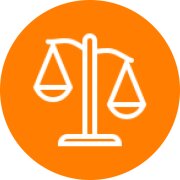Best Mining Law Lawyers in Kota Kinabalu
Share your needs with us, get contacted by law firms.
Free. Takes 2 min.
List of the best lawyers in Kota Kinabalu, Malaysia

About Mining Law in Kota Kinabalu, Malaysia
Mining law in Kota Kinabalu, which is the capital of Sabah, Malaysia, governs how minerals and mining activities are regulated within the region. The law covers a range of minerals including gold, coal, stone, sand, and other natural resources beneath the earth’s surface. Mining activities in Kota Kinabalu are subject to various federal and state laws that regulate the exploration, development, and extraction of mineral resources to ensure responsible use, environmental sustainability, and equitable revenue sharing. The mining sector is crucial to the local economy but must also balance environmental protection and community interests.
Why You May Need a Lawyer
Engaging a lawyer experienced in mining law is often necessary due to the complexities and challenges involved in mining activities. Common situations where legal help may be required include:
- Obtaining, renewing, or transferring mining licenses or permits
- Negotiating mining or joint venture agreements
- Ensuring compliance with environmental regulations and sustainable practices
- Handling land disputes or resolving conflicts with local communities or other stakeholders
- Addressing taxation and royalty obligations
- Dealing with enforcement actions, shutdowns, or revocation of mining rights
- Navigating foreign investment and ownership laws relevant to mining projects
- Drafting contracts for supply, logistics, and export of minerals
- Understanding and managing liabilities for environmental damage or rehabilitation
- Advising on health and safety requirements for mining operations
Local Laws Overview
Mining law in Kota Kinabalu is principally regulated by the federal Mineral Development Act 1994 and, at the state level, by the Sabah Minerals Enactment 2009. The Sabah government holds significant authority over mineral resources within the state boundaries. The following are some key aspects of the local legal landscape:
- Licensing and Permits: No individual or company may conduct mining activities without the requisite license from the Sabah Lands and Surveys Department or the Chief Minister’s office for major projects.
- Land Access: Permission must be obtained from landowners, and in some cases, native land rights must be respected.
- Environmental Regulations: Stringent Environmental Impact Assessments (EIA) are required for most mining projects. Adherence to restoration and rehabilitation plans is compulsory.
- Royalties and Taxes: Specific royalties apply to extracted minerals, and there are tax obligations both at the state and federal levels.
- Foreign Investment: Non-Malaysian entities face restrictions and must follow guidelines for participation in mining enterprises.
- Community Engagement: Laws encourage engagement with local and indigenous communities to mitigate social and economic impacts.
- Dispute Resolution: Disputes can often be settled administratively, but some matters may require court intervention.
Frequently Asked Questions
What licences are required to start a mining operation in Kota Kinabalu?
A prospecting licence, an exploration licence, or a mining lease is required, depending on the stage and scale of your operation. These must be obtained from the Sabah Lands and Surveys Department.
Who owns the mineral resources found in Sabah?
The State Government of Sabah owns all mineral resources within the state boundaries, including Kota Kinabalu. Individuals or companies may only extract minerals with the required state approval.
Are environmental impact assessments mandatory for mining projects?
Yes, a comprehensive Environmental Impact Assessment (EIA) is mandatory for most mining activities before a licence is granted. This is to ensure minimal damage to the environment and to preserve biodiversity.
Can foreign companies invest in mining operations in Sabah?
Yes, but they must comply with federal and state requirements, including restrictions on foreign ownership and mandatory local partnerships for certain types of minerals or strategic resources.
How are land disputes involving mining projects resolved?
Disputes can be addressed through negotiations, administrative channels, or, if necessary, through the courts. Legal advice early in the process can help prevent prolonged litigation.
What are the typical royalty rates for extracted minerals in Sabah?
Royalty rates vary depending on the type of mineral and the terms of the mining licence. They are set by the state government and are subject to revision.
Do indigenous and native communities have special rights regarding mining activities?
Yes. Their rights are protected by state and federal laws, and any mining that affects native land or community interests requires additional consultation and may have extra procedural requirements.
What penalties can be imposed for illegal mining?
Penalties include hefty fines, imprisonment, confiscation of equipment, and revocation of licences. There are also possible environmental restoration orders.
Is rehabilitation of mined land a legal requirement?
Yes, miners must develop and implement a rehabilitation plan for the mined land, and these plans are enforceable as conditions of the mining licence.
How can I check the status of a mining licence or permit?
Licence and permit statuses can be verified with the Sabah Lands and Surveys Department or through relevant government portals. Legal practitioners can also assist with due diligence.
Additional Resources
If you need further information or official guidance on mining law matters, consider reaching out to the following organizations:
- Sabah Lands and Surveys Department - Authority for mining licences and land matters in Sabah
- Department of Minerals and Geoscience Malaysia - Federal body overseeing mining and geology nationwide
- Environmental Protection Department Sabah - Guidance on environmental impact assessments
- Borneo Indigenous Peoples’ Organisation - Advocacy for native land and community rights
- Bar Council Malaysia or Sabah Law Society - Find accredited mining law practitioners
Next Steps
If you are considering mining activities in Kota Kinabalu or are facing a legal issue related to mining, you should:
- Identify the specific legal issue or objective you need to address, such as permits, licence transfers, disputes, or environmental compliance
- Gather all relevant documents including current licences, land titles, agreements, and correspondence
- Consult a qualified lawyer experienced in mining law and familiar with the Sabah legal context
- Prepare a list of questions and desired outcomes for your legal adviser
- Keep records of all communications and actions taken with government authorities or third parties
- Monitor compliance deadlines and permit requirements proactively
- Act quickly if you receive any legal notices or enforcement actions to protect your interests
Timely and professional legal advice can help you navigate the complexities of mining law in Kota Kinabalu, ensuring your project is both lawful and sustainable.
Lawzana helps you find the best lawyers and law firms in Kota Kinabalu through a curated and pre-screened list of qualified legal professionals. Our platform offers rankings and detailed profiles of attorneys and law firms, allowing you to compare based on practice areas, including Mining Law, experience, and client feedback.
Each profile includes a description of the firm's areas of practice, client reviews, team members and partners, year of establishment, spoken languages, office locations, contact information, social media presence, and any published articles or resources. Most firms on our platform speak English and are experienced in both local and international legal matters.
Get a quote from top-rated law firms in Kota Kinabalu, Malaysia — quickly, securely, and without unnecessary hassle.
Disclaimer:
The information provided on this page is for general informational purposes only and does not constitute legal advice. While we strive to ensure the accuracy and relevance of the content, legal information may change over time, and interpretations of the law can vary. You should always consult with a qualified legal professional for advice specific to your situation.
We disclaim all liability for actions taken or not taken based on the content of this page. If you believe any information is incorrect or outdated, please contact us, and we will review and update it where appropriate.








